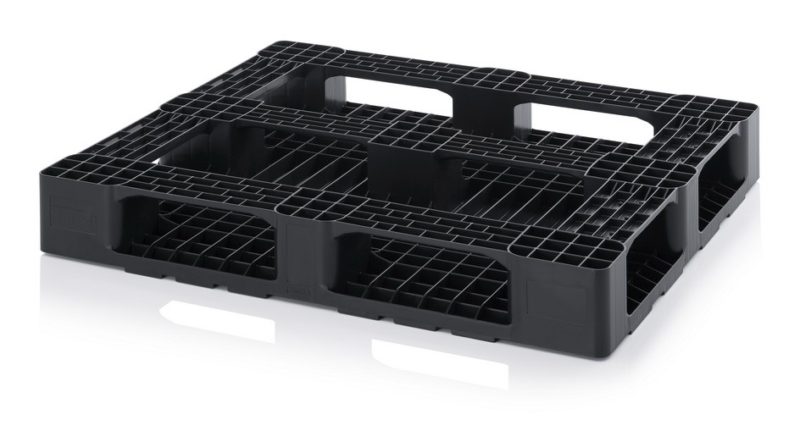Applications of Plastic Pallets in Supply Chain Management
11 Jan 2018
Plastic pallets are in use at every point of the supply chain – so here’s a list of nearly a dozen business applications where they’re vital to supply chain management operations.

Key Uses in the Retail Sector
Pallets designed as display stands can be used for instant merchandising in store. These are often colourful and eye-catching designs, and the fact that the goods haven’t been taken off the pallet means that each product is still in perfect shape.
Food and drink consignments also need to be transported in pallets made of hygienic plastic. The great advantage of Polypropylene (PP) and High-Density Polyethylene (HDPE) plastic pallets is that they can be cleaned, sterilised and reused. The plastic inhibits the growth of mould, unlike wood.
Fresh food has its own challenges. Plastic wins out over wood every time because it doesn’t harbour pests, moulds, bacteria or other pathogens. There are no nails or splinters to damage delicate fruits, and the pallets can easily be sterilised between uses. Because plastic is chemically stable, it can also be used in refrigerated applications.
The non-food retail sector also needs durable and hygienic pallets. Those used in the store can be branded or adapted as display islands.
Special Pallets for Pharmaceuticals, Chemicals and Electronics
Electronics, such as TVs and computers, come in robust cardboard boxes, but they still require special treatment. Even inside the packaging, they can be damaged by static electricity, so special anti-static pallets are used. These have ingredients known as Electrostatic Discharge (ESD) materials added to the plastic during manufacturing.
These pallets are also economical when goods need to be air-freighted because they are much lighter than wood. Even lightweight pallets are capable of handling heavy loads. Pallets that will stack into each other are cheaper to bring back by air too.
Unlike wood, plastic can be manufactured to demanding hygiene requirements. PP and HDPE are used to make pallets for transporting pharmaceuticals because these materials are chemically inert and will not contaminate medicines.
In import and export, these pallets speed up loading and unloading and are much easier to use with movers such as forklift truck, whether the destination is an airport, a shipping terminal or a large goods vehicle bay.
Drums containing oil or other viscous materials can easily fall off wooden pallets and spill their contents. However, because plastic can be shaped and moulded easily, there are pallets available that have circular indentations for the drum to sit in so that it is carried more securely.
Chemical products can be hazardous, and corrosion from a leaking pack could cause significant damage to a truck or ship while in transit. PP and HDPE plastics can resist chemicals. In addition, specially designed pallets have a tray sitting over the pallet. Holes in the tray allow any spills or leaks to drain into the tray, which can easily be lifted out and cleaned.
In heavy industry, where load-carrying capability is a key factor, PP plastic tends to be the choice because it is so strong. It’s the hardest and most rigid type of plastic used in pallets. PP also performs well in high temperatures, and because of its strength it’s the best choice for racked plastic pallets in warehouses.
